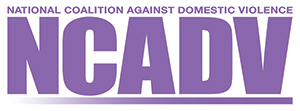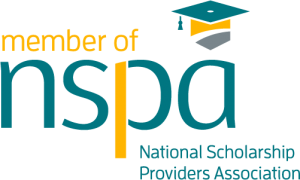Frequently Asked Questions
We accept applications twice a year.
January 1 – March 1
September 1 – November 1
We have no set dollar amount. Each application is reviewed and evaluated on an individual basis. Our first priority awards are for tuition, books and fees for undergraduate or basic training. Our next priority is to assist in reducing indirect financial barriers to education (for example, childcare, transportation, etc.).
Our smallest award has been about $250. The average award is around $2,000 per school term.
The Foundation will consider programs at accredited institutions. This could be a 2 or 4-year college, a technical institute, training school, etc. Programs that have received funding include: Nursing, Teaching, Computer Technology, Computer Training, Law Enforcement, Theology, Equipment Handling, Physical Therapist, Social Work, Counseling, Hairdressing, Landscape Design, Journalism, Medical Billing, Massage Therapist.
No. You are not required to attend school full-time (12+ credits/semester). We believe that each student knows how many classes they can successfully manage and will choose the number of credits that are appropriate to her schedule.
Yes. Trades or technical schools may not have the same type of accreditation that we look for from a more traditional degree plan. Contact a scholarship coordinator to discuss your individual situation.
Yes. Eligibility requirements may differ slightly. We recommend that you call and talk with a scholarship coordinator to discuss your individual situation.
Scholarship Awards for tuition, books and fees are paid directly to the educational institution. Charitable Adjunct Assistance Awards, for reducing financial barriers to education, are paid to the sponsoring agency on behalf of the recipient. We cannot make any awards payable to individuals. Scholarships are paid on a by semester/term/session basis.
No. We have transitioned to an online application and will no longer accept paper copies of the application after August 2014.
It is the responsibility of the applicant to identify a nonprofit, domestic violence victim services provider willing to sponsor her for this program. You must have worked with the sponsor for at least 6 months.
To locate nonprofit domestic violence organizations in your area you can search domesticshelters.org by zip code.
We have found that many of our most successful scholarship recipients have a strong relationship with their sponsor. The sponsor can provide the necessary ongoing support, encouragement and advocacy to help you meet your educational and economic goals.
First, we ask all sponsors to help us in the selection of suitable candidates.
Second, we ask that the sponsor make a commitment to assist the scholar by providing ongoing support. We believe that the unique needs of a woman recovering from domestic violence are often best met by an agency with experience in that field.
Third, from time to time, we make awards that include funds for necessary expenses that are beyond tuition, books and fees. (Scholarship Awards for tuition, books and fees are paid directly to the school.) These Charitable Adjunct Assistance Awards are paid to the sponsoring agency for administration and distribution. We ask that the sponsor handle the funds in a way that they can track them. This can be done by setting up a line item in their accounting system. We leave the record-keeping and disbursement of funds to be worked out between the sponsoring agency and the scholarship recipient. When we provide funds through a sponsor, we ask that they tell us, at the end of each academic term, how the funds were disbursed.
We may ask sponsors to help us evaluate the Women’s Independence Scholarship Program. We are looking to make this scholarship program the best it can be. We value the work of our sponsoring agencies and ask for their input on the program.
Generally, we cannot assist with moving expenses. Keep in mind, this is a scholarship program primarily intended to assist with tuition, books and fees. Secondarily, funds are made available to assist in reducing financial barriers to education (such as childcare and transportation). We cannot assist with old credit card debt, legal fees, relocation expenses, medical bills, etc.
Most often, applications are declined for one of the following reasons:
- The applicant is not a direct survivor of intimate partner abuse.
- The applicant has not demonstrated critical financial need.
- The chosen course of study is not accredited, or is not job-training related.
- The applicant is outside the United States.
- The application is incomplete.
After you submit your WISP application, we will contact your sponsor for feedback. Be sure to double check the spelling of your sponsor’s name and email address.
Every applicant is required to supply one letter of reference. This reference helps us to get a clearer picture of your goals, strengths and abilities. We recommend that you carefully select the individual you ask to provide your reference. People you might consider asking for a letter of reference include: an employer, a counselor or case manager you have worked with, a teacher, or anyone who knows you well and can comment on your abilities, desire and determination to complete your training or educational goals. It is important to know that our reference form does not mention information regarding domestic violence or intimate partner abuse and avoids revealing confidential information on this subject. It is also important to know that your sponsor cannot be a reference.
No. Our renewal application is significantly shorter.



